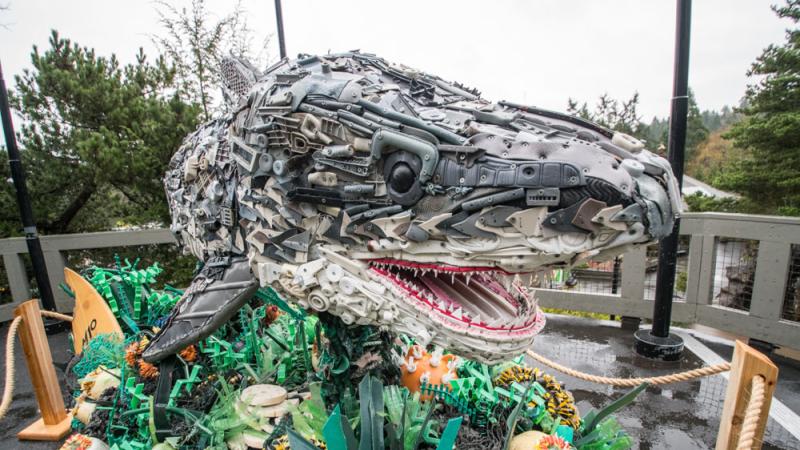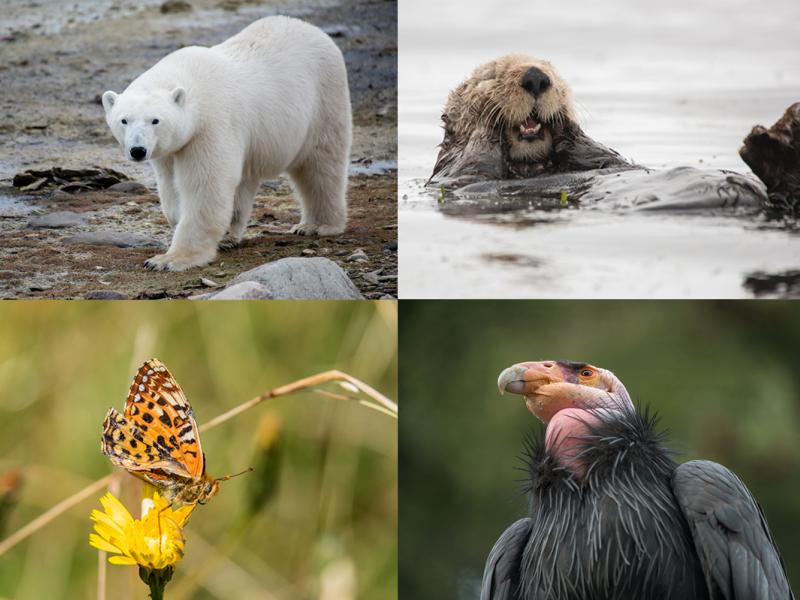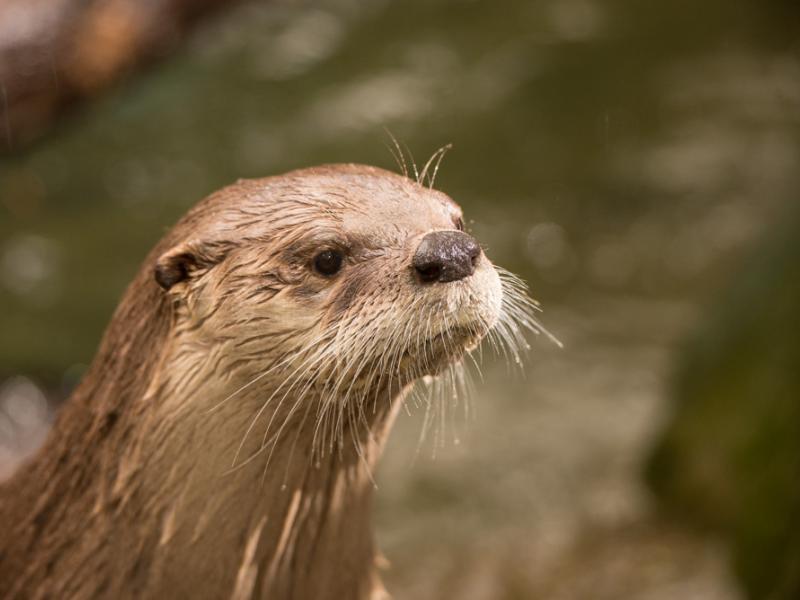Giant sea-life sculptures wash ashore at Oregon Zoo

Traveling art exhibit aims to raise plastics awareness for healthy oceans
The newest arrivals at the Oregon Zoo may hail from the beach, but they aren't your typical marine animals. "Washed Ashore: Art to Save the Sea," a series of giant sea-life sculptures made from ocean debris, debuted at the zoo this week. From Chompers the Shark, who greets visitors on the boardwalk, to Hugo the Humpback Whale, who can be spotted near the central lawn, each sculpture is made from found materials in the hopes of raising awareness of plastic pollution in our oceans.
"We're thrilled to bring this fun and engaging outdoor art exhibit to the zoo," said Tom Gaskill, the zoo's conservation learning program manager. "Not only are the sculptures beautiful but they're built to spark great conversations about healthy ocean habitats and ways we can all help marine life thrive."
"Washed Ashore" has been all over the country, but this time the sculptures didn't have to travel far from home. They were designed by artist and educator Angela Haseltine Pozzi at her studio in Bandon, Ore. She creates each piece using debris collected on the beaches of Oregon, and assembles them in her studio with the help of thousands of volunteers. Each sculpture is designed around a theme, which makes their messages about ocean habitats all the more powerful.
"One of my favorites is the American Sea Star, which was made using fireworks found on the beach," Gaskill said. "When you realize how much of the waste that ends up in the ocean could have been prevented by simply taking responsibility to clean up or perhaps rethink what we are buying to begin with, you begin to understand that we can make a difference."
Other sculptures in the exhibit include a fish made entirely from flip-flops, a sea jelly bloom created with plastic water bottles, and a seal named "Lidia" for the plastic lids used in her design. Each sculpture is larger than life and brings with it a potentially life-saving message for the creature that inspired it.
Nearly 9 million tons of plastic enter our oceans each year, and that number is expected to grow by 2025. All of this plastic poses a threat to the majority of sea turtle, marine mammal and seabird species that call those oceans home, whether by ingestion or entanglement. Turning the tide of plastic consumption is a daunting task, but even small efforts can make a big difference.
"The purpose of 'Washed Ashore' is to raise awareness of this issue and to bring guests, staff and volunteers together to work toward solutions," Gaskill said. "Our visitors will learn ways they can help reduce plastic pollution in their own lives, and how they can get involved with the zoo's efforts to support ocean and coastal wildlife."
In partnership with the Oregon Zoo Foundation and Metro's Waste Prevention and Environmental Services team, "Washed Ashore: Art to Save the Sea" will be at the Oregon Zoo through September. The sculptures are located throughout the zoo, and viewing is included with zoo admission.
The Oregon Zoo believes that reducing the sources of plastic pollution will protect the health of wildlife, people and the ecosystems we depend on. As consumers become more aware of the problem, they can increase demand for alternatives to single-use plastic, such as reusable packaging, containers and utensils. In turn, they can help drive business innovation in new product design and materials. In 2018, the Oregon Zoo eliminated all single-use plastic water bottles and straws as the first step of a plastics reduction plan.
More News

Take action: Protect wildlife by protecting their homes
Speak up to protect wildlife. Submit a public comment urging the government to keep the Endangered Species Act strong — including protections for habitat.May 8, 2025

Zoo mourns Strike, one of oldest male cheetahs around
At 15, Strike was considered geriatric for his species and was the second-oldest male cheetah living in an AZA-accredited zoo.May 8, 2025

Zoo says goodbye to Tilly, beloved otter mom
At 16, Tilly was considered geriatric for her species.April 30, 2025

